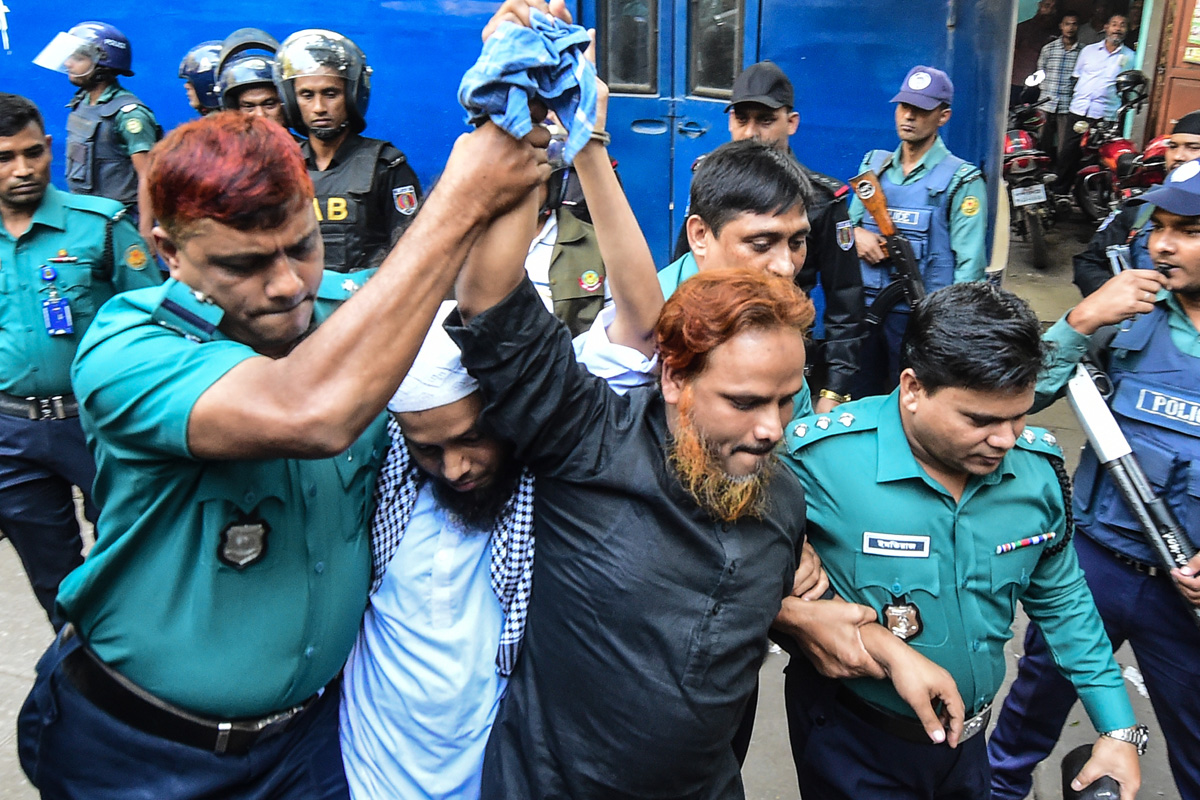The seven perpetrators of the worst terror attack in Bangladesh have met their comeuppance. They have been sentenced to death for the outrage in upmarket Dhaka’s Holey Artisan Bakery in 2016, killing 22 people, mainly foreigners. If to a far, far lesser degree, it revives memories of the targeting of foreigners by Pakistani terrorists in Mumbai’s 26/11 butchery. While the judicial action has been drastic and decisive, it devolves on the Awami League government to be consistently firm with Islamist fundamentalists.
It isn’t. Begum Hasina’s administration has often dithered in the face of the killings of rationalists and bloggers by Islamists. Apart from the killings in Holey Artisan Bakery, the seven were charged with training the attackers and supplying arms, explosives and funds. Direly intriguing last Wednesday, the day of the verdict, is that two among those sentenced were wearing prayer caps bearing the insignia of the Islamic State of Iraq and Syria. While this points to the intrusion of Isis into Bangladesh, the authorities have swiftly started an investigation into how the caps reached the convicts while they were in custody, unless the prison guards had acted in cahoots with Caliphate activists.
Advertisement
The 1 July 2016 attack on the restaurant that is popular with foreigners in Dhaka’s diplomatic enclave had shocked the nation and unnerved entrepreneurs, notably the vital garment exports sector and foreign investors. Five young militants, armed with guns, sharp weapons and grenades had stormed the Holey Artisan cafe, taken diners hostage and killed them over 12 hours. Nine Italians, seven Japanese, an American and an Indian were among the dead. The attackers were also killed in a rescue operation by army commandos.
The seven who have been convicted belong to Jamaat-ul-Mujahideen Bangladesh, a group that seeks to establish sharia rule in the country. The organisation, it has now been proven, can be no less sinister than Isis. It is fervently to be hoped that the judgment will set an example, conveying a message to militant groups that none of them will be spared. Prime Minister Hasina has on occasion cracked down on militant groups to preserve the image of Bangladesh as a moderate Muslim nation.
But the challenge is forbidding not the least because of the militant links to Begum Khaleda’s Bangladesh Nationalist Party (BNP). The fundamentalist Jamaat was once a partner in her coalition government. After the cafe siege more than three years ago, police raided the suspected hideouts and killed dozens of militants believed to have helped mount the attack. Hundreds more were arrested.
The crackdown, which must of necessity be sustained, underlines the extent to which the Islamist militants are entrenched in a supposedly moderate ~ albeit less than liberal ~ Bangladesh under the Awami League, which brought the country freedom. An outrage, such as the one on 1 July 2016, would have been anathema to the founders, pre-eminently Sheikh Mujibur Rahman.









